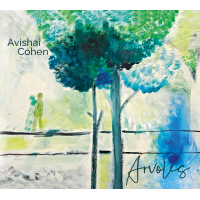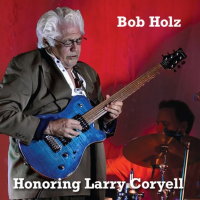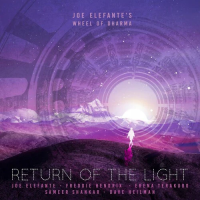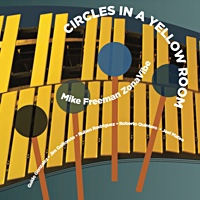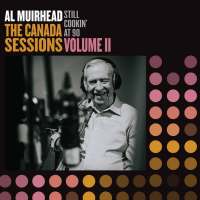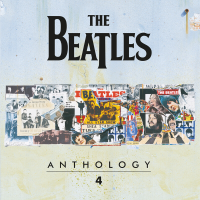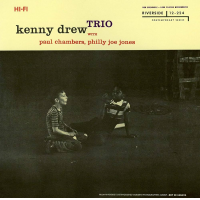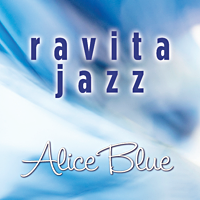Home » Jazz Articles » Album Review » Marcus Shelby Orchestra: Transitions
Marcus Shelby Orchestra: Transitions
Shelby's picturesque charts, which traverse the musical map from blues to boogie and barrelhouse to swing, deftly encompass the character and spirit of the four cities to which they are addressed: Pittsburgh, New York, Chicago and Kansas City, each of which was home to one (or more) of the teams that helped comprise the Negro Leagues, which flourished in the 1920s, '30s and into the '40s before the National and American leagues grudgingly unlatched an entryway for black players. More than that, Shelby's engaging themes stand firmly on their own as topnotch big-band jazz compositions whose thematic framework is inbred but subordinate.
"Pittsburgh," an irrepressible blues that epitomizes the city's fortitude and hard-nosed temperament, features crisp solos by trumpeter Rafa Postel, baritone saxophonist Fil Lorenz and the band's versatile pianist, Matt Clark, who is heard again (with trombonist Rob Ewing and Shelby's impressive bass work) on the emphatic "Barnstormin'" (Chicago) and (alongside tenor Danny Brown and guest trumpeter Mike Olmos) on the flag-waving "Black Ball Swing" (Kansas City). Tenor Patrick Wolff and trombonist Mitch Butler share solo honors on the bright and colorful "New York" (with further congenial piano voicings by Clark, this time in a supporting role).
Rewarding as it is, the suite comprises only four of the album's eleven tracks. Among the other seven, five are vocals by Tiffany Austin who has a strong voice, good range, respectable timing and sings on-key. Further to the point, she reaps enormous benefits from Shelby's colorful arrangements of Cole Porter's "Begin the Beguine" and "It's All Right with Me," George Shearing's "Lullaby of Birdland" and Duke Ellington's "Solitude" and "Mood Indigo." The other instrumentals, Charles Mingus' "Remember Rockefeller" and Ellington's seldom-heard "On a Turquoise Cloud," are among the album's highlights, and Shelby was smart to lead with them. "Rockefeller" is a lyric and rhythmic delight, quite unlike what one might expect from Mingus, and Shelby's light-hearted arrangement is superb, as is Clark who dazzles again at the keyboard. "Turquoise Cloud" is a beguiling ballad that enfolds guest violinist Mads Tolling in a warm and comfortable setting that enhances his lovely sound.
In sum, another delightful and persuasive theme-based album by Shelby and his talented Bay Area orchestra that merits one's scrutiny for the "Black Ball" suite alone.
Track Listing
Remember Rockefeller; On a Turquoise Cloud; Begin the Beguine; Lullaby of Birdland; Solitude; It’s All Right with Me; Transitions I (Pittsburgh); Transitions II (New York); Barnstormin’ (Chicago); Black Ball Swing (Kansas City); Mood Indigo.
Personnel
Marcus Shelby
bassMarcus Shelby: bass, conductor, composer, arranger; Bill Thereur: trumpet; Bill Ortiz: trumpet; Rafa Postel: trumpet; Mike Olmos: trumpet (10); James Mahone: alto sax, flute; Tom Griesser: alto sax, flute; Patrick Wolff: tenor sax, clarinet; Danny Brown: tenor sax; Fil Lorenz: baritone sax; Mitch Butler: trombone; Rob Ewing: trombone; Charles Hamilton: trombone; Matt Clark: piano; Mads Tolling: violin (2); Jeff Marrs: drums; Tiffany Austin: vocals.
Album information
Title: Transitions | Year Released: 2019 | Record Label: Self Produced
Tags
PREVIOUS / NEXT
Support All About Jazz
 All About Jazz has been a pillar of jazz since 1995, championing it as an art form and, more importantly, supporting the musicians who make it. Our enduring commitment has made "AAJ" one of the most culturally important websites of its kind, read by hundreds of thousands of fans, musicians and industry figures every month.
All About Jazz has been a pillar of jazz since 1995, championing it as an art form and, more importantly, supporting the musicians who make it. Our enduring commitment has made "AAJ" one of the most culturally important websites of its kind, read by hundreds of thousands of fans, musicians and industry figures every month.





